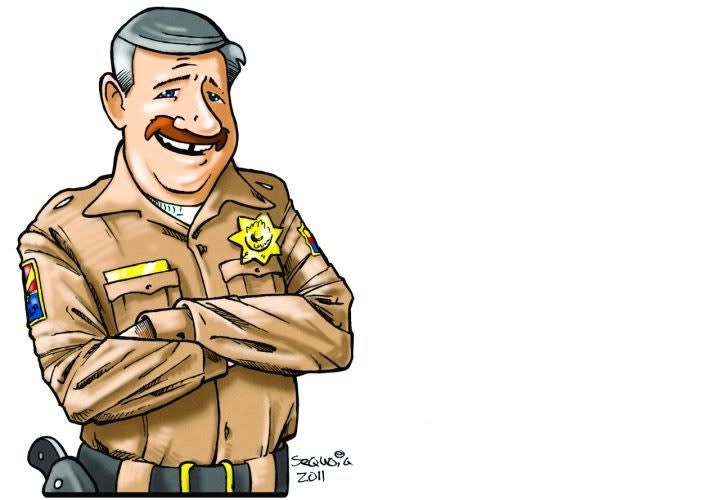Wow, what a great name for an article, right? "Learn or Die" sounds like a movie title for an evil "To Sir, With Love" remake with Sidney Portier as a chainsaw-wielding teacher who can't take it anymore. What it is, though, is a personal thought I had while reading "Make It Stick: The Science of Successful Learning" by Peter Brown. It came to me while I was thinking about key points Brown and his scientist coauthors made in the book about our brains and how we learn.
It seems continuing to learn stops the forgetting process, which is important because in our profession forgetting can have dire consequences. How many times have you watched a video of an officer getting hurt and thought, How did he forget to keep proper positioning? or Why did she stop watching the hands? If they had kept learning they probably wouldn't have.
What makes this book a great read for law enforcement trainers and "learners" is that it contains police-related examples at key times. The authors recognize the need for thos in dangerous professions, such as pilots and crime fighters, to not only learn lessons well but, just as importantly, to keep routine, time, and forgetting from degrading that knowledge. The act of learning stops the forgetting process, so you not only learn more you retain the old and the new.
I remember my dad, a physician and surgeon, constantly reading his medical journals, not only in his own specialty, but also in things like sports medicine and other areas of expertise. I once asked him why he read all these journals and he simply said it made him a better doctor.
Well, that is certainly the kind of doctor I want and the kind of cop I would want as a backup; someone who is constantly learning. "But," you say, "I was never good in school and I hate studying!" I think lots of us feel that way, but learning is done in a multitude of ways and when you read this book you are assured that whatever your school said your IQ was doesn't mean a tinker's darn.
Instead of talking about seven types of intelligence the authors explain that there are three parts of successful intelligence: 1. Analytical, our ability to complete problem-solving tasks. 2. Creative, our ability to synthesize and apply knowledge and skills to deal with new and unusual situations. 3. Practical, the ability to adapt to everyday life and understand what needs to be done and how to do it. I would call this "street smarts."
Traditional tests only measure the first component, which explains why we get called to help out so many "geniuses" who have gotten themselves in a pickle. I have known so many brilliant cops who barely got out of high school, excelled in the military, and make wherever they are standing a damn safe place to be next to. They glean every lesson they can from every experience and are constantly applying new knowledge on the street. They learn in briefing, on the street, while debriefing other cops, watching videos, reading articles, and in a hundred unperceived ways, because they are constantly trying to find out what they don't know.
Ignorance isn't bliss, it is dangerous. And this book makes clear that incompetence is dangerous because the incompetent not only greatly overestimate their abilities; they also greatly underestimate their inabilities…a toxic combination.
Finally, for you trainers, this book has tons of great ideas about training, since learning is the active verb in training; no learning, no real training. Little tidbits abound throughout the text. Here's one extraordinary example the authors outline.
A cop practiced a disarming technique over and over and over again until it became a habit, except that during practice, the officer gave the gun back to the offender—in this case, a fellow cop. One day on the street, a suspect drew a gun on him and "wham bam," he disarmed the suspect in a flash, but then just as smoothly, handed the firearm back to the evildoer! One can picture the shock to both hero and villain when this happened, the verbal exclamation from the officer, and then the immediate reapplication of the technique that followed. Fortunately, the officer kept the weapon this time but the moral of the story is clear: We will play the way we practice.
So run, don't walk, to your local library and enjoy this short but informative book and put your forgetting on hold. Stay safe.
Dave Smith is an internationally recognized law enforcement trainer and is the creator of "JD Buck Savage." You can follow Buck on Twitter at @thebucksavage.












